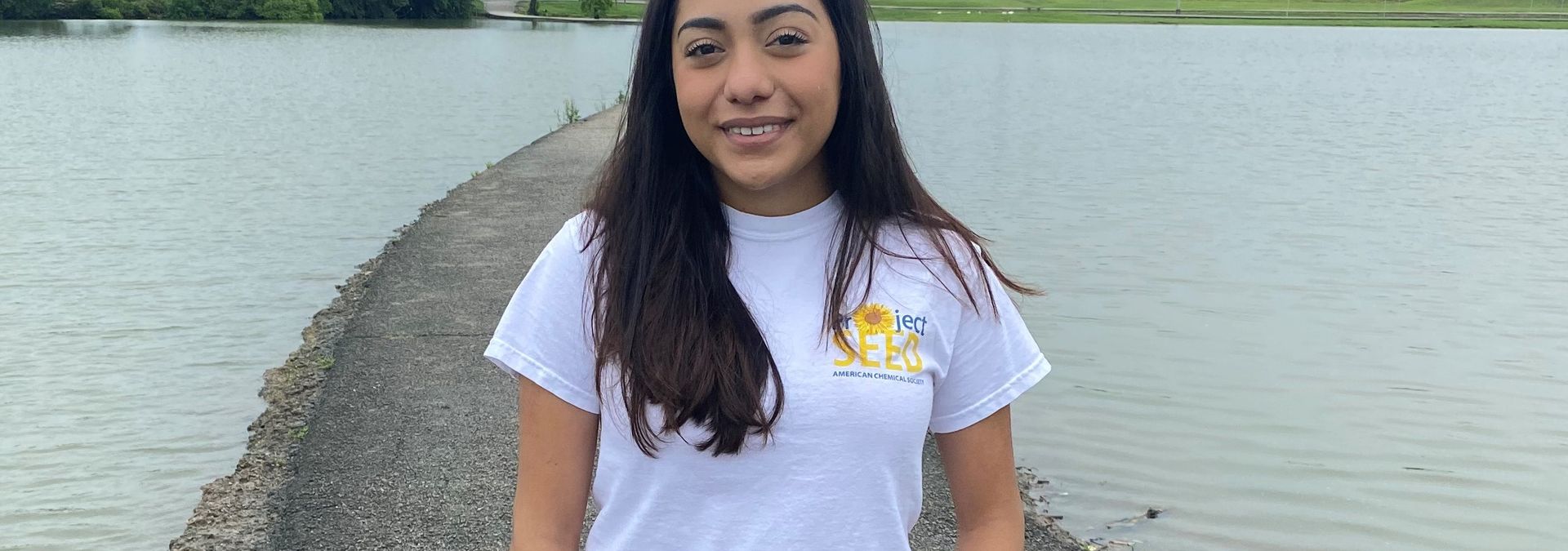
'Pasadena is my home': A conversation about environmental justice with Krystal Mireles
Krystal Mireles, 18, says she has an "instilled fear" of living near polluting industries and recurring chemical disasters. "It’s not matter of if, but when the next plant is going to explode." Courtesy photo.
Krystal Mireles, 18, loves Pasadena. It’s a short commute into downtown for her parents. Her aunt and cousins are close by, and she walks with her mom at Crenshaw Park, where she flew kites as a kid.
The best breakfast taquitos in Texas, she says, are right there at De Jalisco.
But her community, and others near the Houston Ship Channel, face a disproportionate environmental burden of air pollution. A 2006 task force report for then Mayor Bill White noted: “Over 20 of the largest industrial sources [of pollution] are located in East Houston. The Port of Houston, and the Ship Channel that feeds it, passes through the middle of this area and generates a variety of hazardous pollutants, adding to those from the nearby industrial sources. Four major highways intersect this area … each generating substantial pollution from high traffic density."
It’s affected Mireles’ family. Her brother has asthma, she says, because they live so close to the refineries. She says she also has an “instilled fear” of natural and chemical disasters, which create extra pollution as those refineries and other facilities shut down or their equipment fails, illegally releasing already underregulated cancer-causing chemicals like benzene, ethylene oxide and 1,3-butadiene. “It’s not a matter of if, but when the next plant is going to explode,” she says. “And we're the ones who have to pay for that.”
She tells this story in her video, “Air Pollution Newscast." It’s the first-place winner in Environmental Defense Fund's fourth annual “Houston Teens Care About Clean Air” video contest. With Mireles, 35 other young people in Houston — the most ever — told their stories. (You can watch hers below.)
For Mireles, “it’s critical that we maintain excellent air quality,” she says. She’s been doing her part, taking a hands-on approach through Environmental Defense Fund’s Environmental Youth Council, an educational program for high school students in Houston communities with the greatest burdens from air pollution. Before Mireles heads off this fall to attend Texas A&M University, where she will begin her path toward becoming a doctor, I asked her more about her life in Pasadena and her commitment to environmental justice.
Our conversation has been edited and condensed for clarity.
Irene Vázquez: I was struck by your use of news clips at the beginning of your video. How does it feel to have to not only experience these things, but then watch them play out on the news, over and over again?
Krystal Mireles: It's sad, because I want to be proud of my city. I want it to be thriving, but it’s just sad. Even my [AP Environmental Science] teacher, Dr. Ferguson, tells us the best thing we can do is to educate ourselves and come back and try our best to fix the problem as soon as possible. Pasadena is my home. I had my quinceanera pictures taken at Crenshaw Park. But we’re really close to the refineries, so we’re heavily affected. Everyone calls it “Stinkadena,” because of that. There’s that notion here.
IV: What do you think the role of the news has to play teaching people about air pollution?
KM: I think they have a large role to play. I always listen to the news, so I think it has a major influence. And I think if they showcase it the way I did and kind of instilled a fear in people, it might do a better job educating viewers.
IV: How do the environmental issues you’re learning about come up in your school life?
KM: Just recently, Environmental Defense Fund installed an air monitor on top of Pasadena High School. So every day, every morning, during our attendance check, we would go and check the monitor and the air quality index. And we'd be like, “Guess what? This is what happened. The refinery exploded. This is our air quality today.”
More often than not, the air quality in Pasadena is not where it needs to be. We learn firsthand, "This is what we're breathing in. And this is what we're dealing with.” We're able to see all that data. It's fascinating.
IV: What do you think that young people have to offer movements around environmental justice?
KM: I think our generation in particular is so good at noticing when there's a problem and seeing when it needs to be fixed. I think our generation, especially in terms of social media, can offer so much awareness to people who I guess you could say are uneducated at the moment. I'm really proud of our generation for that.
IV: What's one thing related to environmental justice issues that you wish people talked about more?
KM: I wish we talked about how air pollution is not regulated enough. I do not think it's regulated enough.
And of course with the U.S. being extremely capitalist, we're always the people who live by it. We're the ones who have to suffer the consequences of it.
Vázquez is a student at Yale University, where she is an associate editor for Broad Recognition, the undergraduate feminist publication. She can be found on Twitter @capaciousmood.
STAY UP TO DATE
The quality of our newsletter is considered satisfactory and poses little or no risk.
SUBSCRIBE

